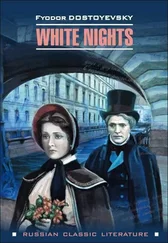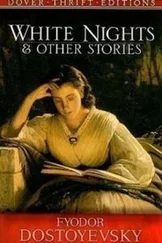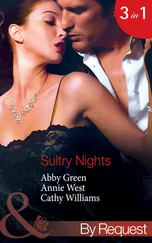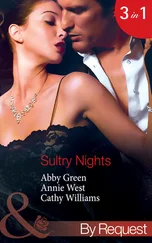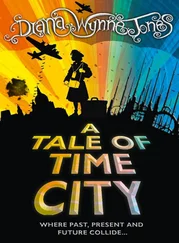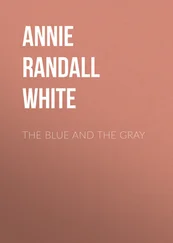Mother now spent what evenings she could out of the house. She took night classes that met at the feed store in the center of town. The nights she wasn’t studying, she attended meetings held by The League of Women Voters in Margaret’s studio. Beyond voting, the league was dedicated to promoting speaking opportunities. Mother had begun exercising these around the house with Birdie and I. Despite her conservative politic, Mother was fiercely imaginative and outspoken, attributes ignited by those Sunday sit-ins. Margaret appreciated Mother’s thrift and her libel. She recognized in the young woman a similar passion for bargaining with the world. Despite the gap in their age and their experience, life had lent both women the perspective that the only interesting lives were those lived by people whose subsistence required very little upkeep, yet whose true thriving was provided for by acts of excess. Margaret smoked and threw dinner parties. Socially Mother cavorted with the town’s few peaked progressives. She danced in the kitchen to Elvis. Margaret brought some color back into her cheeks.
“I’m just not sure this print’s particularly modern,” Mother said that morning, regarding the O’Keeffe where it rested against our kitchen wall.
“Look around you,” Margaret chided, “Next to that window, the painting almost looks like a mirror image of your little view.”
“So now you’re saying I’ve bought a house with a dismal view,” Mother laughed.
“Precisely,” Margaret laughed.
“It’s depressing,” Mother said. “Staring at all that red in the distance. It’s like someone rained blood on the mountain.”
“Color overthrows form,” Margaret said. “Really, it’s a very m odern idea.”
As if to lend credit to her heritage, Margaret was a gifted photographer. Her husband had worked for the Audubon Society and was rumored to have been a distinguished botanist and nature writer. In an act of affection for him, Margaret had taken up photography and had often accompanied him on his trips. Mr. Nydam had died some years before Margaret came to own her apartment above the Agway — really more of an attic studio than home — which now housed her plethora of nature books, hardcover photography manuals, and a collection of photographic equipment that harked back to another era. One volume documented the mission of an environmental photographer to chart the Earth’s topography, a solitary job performed under some level of duress and extremity of climate. Along with several scrapbooks of newspaper clippings and an indexed library of field guides, the manuals, cameras, and other photographic equipment made up the entirety of the existing relics of Margaret’s husband’s fabled career. I imagined Mr. Nydam, writer, philanthropist, bird enthusiast, disappearing from society for several days at a time, knee-deep in swamplands, charting the growth of exotic flora and fauna while predicting local weather trends based on the migratory patterns of various flocks of sandpiper and wood thrush.
The Nydams never had any children. Margaret was a woman with whom other women could relinquish all memories of childbirth and breast-feeding. She unbuckled herself after dinner and enjoyed a glass of good sherry with the occasional fag. This idea, or some combination thereof, made Mother giddy. She came home from those Sunday evenings at Margaret’s smelling faintly of smoke and brandy, some new book or broach that Margaret had lent her tucked away in her purse.
Father called the group The Separatists.
“Where you going, Rick?” Mother would say those evenings after supper when Father pulled a cigar from his pocket and lit off up the road toward the butte which overlooked the highway.
“A lady needs time for leisure,” Father would say.
I knew Father kept a box of White Owls in the glove compartment of his Bronco. The cigars were individually wrapped and sealed with thin strips of paper on which was displayed the white bird perched on his branch. Below the bird the emblem read: New Yorker, Est. 1887. I’d taken to stealing the tossed wrappers from the backseat of Father’s car.
Those nights Father went out walking, I imagined he found himself looking up at the familial scenes which presented themselves in the windows of the neighboring houses on Fay Mountain. Perhaps he was impressed with the scale of life they presented. The most important goal in life was to author something authentic, he’d tell us. There was something handsome in it. He’d insisted we call him Pop. Father was what he had called his old man. It had too much of the dictator in it, he said.
“So you’re saying O’Keeffe had a certain artificial intelligence,” Mother said that morning.
“I’m saying she had a certain hardness, is all,” Margaret said.
I regarded the print from where I stood in the kitchen. To me, it looked like a reflection of Mother herself, bold and red and sprawling.
Content with their handiwork, Margaret surrendered to the news. Since the war had started, Mother had kept a small television on the counter so we could follow the headlines.
“I’ll never get used to it,” Mother said.
“Used to what?” Margaret said.
“The continuity of all this coverage. I keep thinking they’ve dropped a bomb over there every time my teacups rattle a little in my kitchen. I find myself pacing the house waiting for the sirens to sound.”
“You’re a product of your generation,” Margaret said.
“I’m a product of the space race,” Mother said. “Growing up, I remember looking out the window one winter and thinking the Russian’s had finally bombed us. It turns out it was just the first snow.”
“What sirens?” I said.
“The air raids, baby,” Mother said. “I went to school during the Cold War. Several days a week we had a drill. An alarm would sound and we’d hide under our desks.”
“What were you protecting yourself against,” I said.
“A big red scream, darling,” Margaret said.
“Never mind all that, baby,” Mother said. “Come here and watch the news.”
I tried to imagine what a cold war would look like. I pictured a tundra of ice with soldiers frozen into it. To my mind, the current war in the desert was humorless. The endless shots of the soldiers which plastered the screen at all hours of the day lacked temperature or color. Those evenings Father returned late from work, Birdie, Mother and I ate TV dinners on folding trays in the living room. Mother liked to listen to Brokaw. She watched interviews with the POW’s in silent anticipation. I had recently come upon Mother standing in front of her bathroom mirror one morning imagining that she herself was participating in the coverage. An old college flame of hers had once been a filmmaker. He’d written one screenplay — Did I Wake You Up? For a brief stint in the seventies under his tutelage, Mother had entertained the idea of becoming a newscaster. She and her flame would sit up nights and he would interview her about her reactions to life at her women’s college, which was considering becoming Co-ed.
“What do you make of America’s response to this new war as a child of the Vietnam generation,” I had seen Mother ask herself into the old wooden handle of her hairbrush.
“It has a certain hardness about it,” Mother had replied.
There was, Mother taught me, a certain liberty in reflecting upon the experiences of one’s previous lives.
The news that morning with Margaret and the O’Keeffe was interrupted by a knock at the front door.
“Sorry to interrupt on a weekend, Ma’am,” the Ranger standing on our porch said. “Is your husband at home?”
“I’m sure he is,” Mother replied studying him through the gaps in the screen. “May I ask who’s inquiring?”
Читать дальше
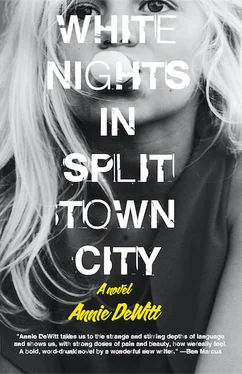
![Элизабет Ленхард - Свидание со смертью[Date With Death]](/books/79651/elizabet-lenhard-svidanie-so-smertyu-date-with-dea-thumb.webp)



